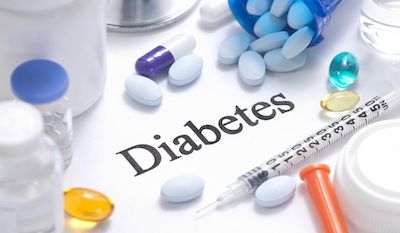Article
Results from SWITCH Trials Published
Author(s):
The drug reduced risk of overall symptomatic hypoglycemia compared to insulin glargine U100.

The results from 2 phase 3B trials that evaluated the efficacy and safety of insulin degludec injection 100 U/mL in adult patients with type 1 (T1D) and type 2 diabetes (T2D) and showed shown that the drug reduced the rate of overall symptomatic hypoglycemia have been published in the Journal of the American Medical Association, according to the drug’s manufacturer. .
Novo Nordisk announced in a news release that the results from the SWITCH-1 and SWITCH-2 trials, which studied its once-daily, long-acting basal insulin (Tresiba) by comparing it with insulin glargine U-100 in this patient population, were published by the medical journal after being presented at the American Diabetes Association’s 76th Scientific Sessions in New Orleans.
“Hypoglycemia is an important concern for adults with type 1 and type 2 diabetes who take insulin,” Todd Hobbs, MD, vice president and chief medical officer at Novo Nordisk US, said in the company’s announcement. “The publication of the results from the SWITCH trials provides important information about hypoglycemia that may help inform treatment decisions for adults with diabetes.”
The primary endpoint of both 2x32-week, randomized, double-blind, crossover, treat-to-target studies was the rate of treatment-emergent symptomatic hypoglycemic episodes during the maintenance period, whether the episode was severe or blood-glucose confirmed. According to Novo Nordisk, the 2 studies are the first double-blinded trials to be completed that evaluated the rates of and risks for hypoglycemia in patients with T1D or T2D taking insulin degludec injection 100 U/mL and insulin glargine U-100.
There were 2 secondary endpoints. Researchers studied the rate of treatment-emergent nocturnal episodes of hypoglycemia, either severe or blood-glucose—confirmed, as well as the proportion of study participants who had 1 or more severe episodes.
In SWITCH-1, 501 patients with T1D were randomized to crossover treatment with insulin degludec injection 100 U/mL and insulin glargine U-100 in combination with insulin aspart. The study showed that the patients who received insulin degludec injection 100 U/mL experienced a rate reduction of 11% in overall symptomatic blood-glucose—confirmed hypoglycemic episodes (95% confidence interval [CI]: 0.85; 0.94).
These patients also experienced a rate reduction of 36% in nocturnal blood-glucose—confirmed symptomatic hypoglycemic episodes (95% CI: 0.56; 0.73), and a rate reduction of 35% in severe or blood-glucose–confirmed symptomatic hypoglycemic episodes (95% CI: 0.48; 0.89); during the maintenance period.
In SWITCH-2, 721 patients with T2D were randomized to crossover treatment with insulin degludec injection 100 U/mL and insulin glargine U-100 in combination with oral antidiabetic drugs.
The patients receiving insulin degludec injection 100 U/mL in this study also experienced rate reductions in hypoglycemic episodes, meeting both primary and secondary endpoints. For overall blood-glucose—confirmed symptomatic episodes, the rate reduction was 30% (95% CI: 0.61; 0.80); nocturnal blood-glucose–confirmed symptomatic episodes showed a rate reduction of 42% (95% CI: 0.46; 0.74). For the full treatment period, there was a significant 51% reduction rate in severe episodes (95% CI: 0.26; 0.94).
Insulin degludec injection U-100 for adults with T1D and T2D was first approved by the US Food and Drug Administration (FDA) in September 2015. In December 2016, the FDA approved Novo Nordisk’s supplemental New Drug Application to expand the indication to include children and adolescents with T1D and T2D into adulthood, based on the results of the BEGIN™ Young 1 trial.
RELATED COVERAGE:
DEVOTE Trial Demonstrates Cardiovascular Safety and Reduces Risk of Severe Hypoglycemia
WATCH: GLP-1 Receptor Agonist/Insulin Combinations
Improving Control in T2DM Patients: Add Insulin





